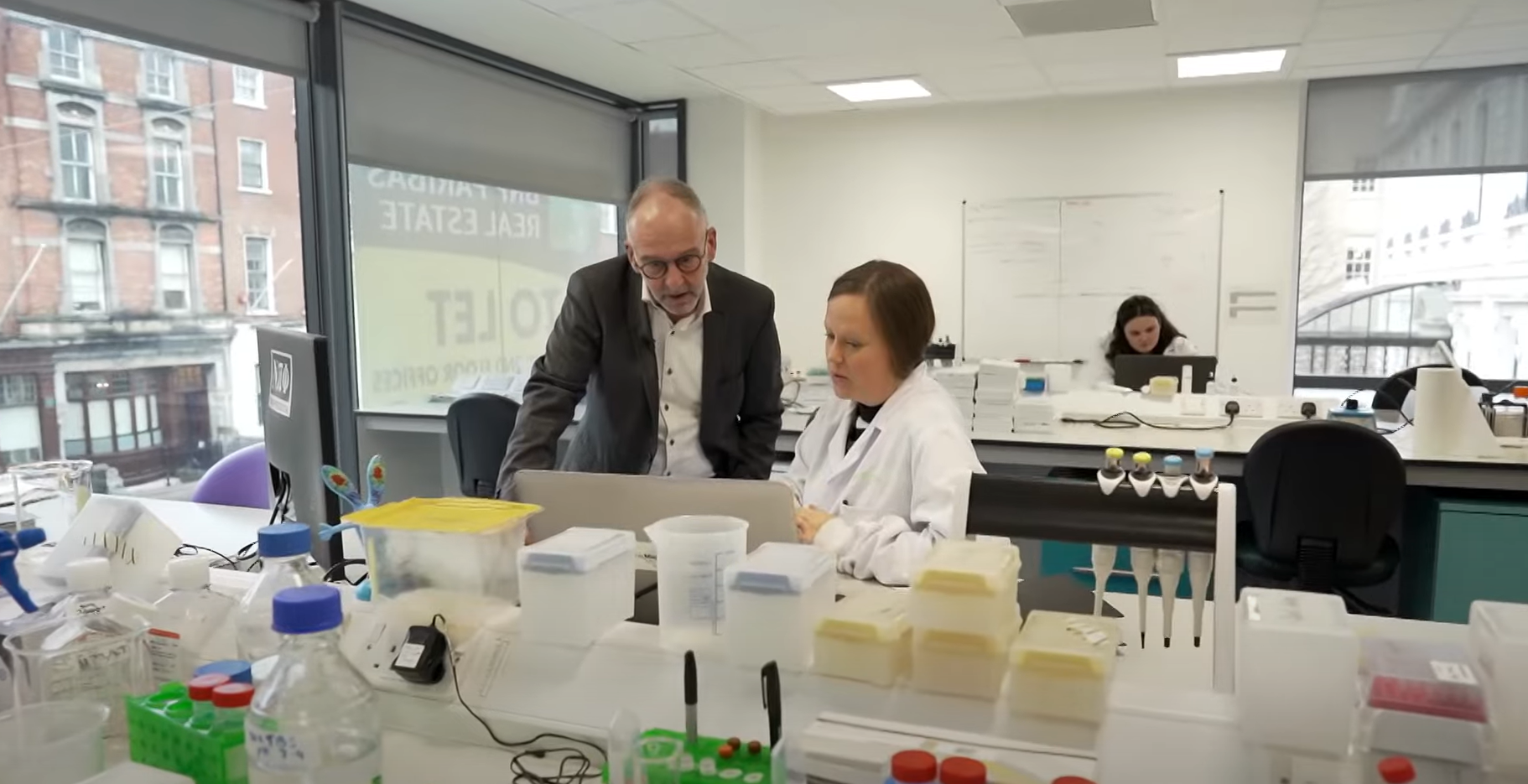News
January 18, 2023
By Ines Branco
Nuritas features on Dutch NOS


We kicked off the year with an interview by the DFutch news channel NOS, they spoke to Henri our CSO about all things Nuritas, innovation and the Irish economy. The article and video are in Dutch but we have a translated version:
Irish economy enters new year roaring
The tech industry is a major contributor to Ireland’s economy, which is in better shape than ever. The latest projections put economic growth in 2022 at over 10 percent. Unemployment is historically low at 4.3 percent and Ireland is one of the few countries to end the year with a budget surplus. This puts it head and shoulders above its European neighbors.
Invest, stimulate and facilitate
Ten years ago, Ireland was in a much less prosperous position. The first boom period of the Celtic Tiger came to an abrupt end with the financial crisis of 2008. What followed were years of economic malaise and stagnation. A billion-dollar loan from the European Union had to keep Ireland afloat.
Those difficult years also sowed the seeds of a new boom period. The financial crisis brought increasing international criticism of the low profit tax rate – always an important pillar of the Irish model. It resulted in global agreements to establish a minimum tax for multinationals.
The Irish government decided to change its economic course. There was an increasing emphasis on strengthening the knowledge economy. Invest, stimulate and facilitate became Dublin’s three commandments.
In this, organizations such as Enterprise Ireland and the Industrial Development Agency (IDA) play a crucial role. They direct millions in government grants to promising sectors and education. “We try to create an ecosystem where big international companies and Irish businesses come together,” says Anne Lanigan, of Enterprise Ireland. “That way we encourage them to keep investing in research and innovation.”
Cross fertilisation
Take the National Institute for Bioprocessing Research and Training (NIBRT). The training institute was established with support from the IDA in 2011 to provide the burgeoning biotech sector with a highly skilled workforce. It became a resounding success and the institute, again with funding from the IDA, is now expanding further.
“The disposition of talent is our new low-profit tax,” argues Killian O’Driscoll of the NIBRT. “It is the deciding factor in attracting foreign investment. Where do you find the engineers and scientists who understand the complexities of the biopharma industry? That’s all-important for future success.”
Ireland shows how innovation, research and a favorable entrepreneurial environment breed innovation and economic growth. The Irish company Nuritas is a prime example. The company exemplifies a cross fertilisation of Ireland’s two major industries: tech and pharma. It was able to take full advantage of the large pool of highly skilled workers from these sectors.
Correspondent Arjen van der Horst spoke with Dutch entrepreneurs in Ireland about problems companies there face:
Nuritas is doing pioneering work by combining food technology with artificial intelligence. It develops nutritional products that prevent health problems such as diabetes or, for example, repair damaged muscles faster.
Nuritas began in 2014 as a start-up on the campus of University College Dublin but has since grown considerably. “We are no longer a start-up, but a scale-up,” says Dutchman Henri Molhuizen with a smile. As chief scientific officer, he oversees Nuritas’ scientific research.
“What we do is quite unique. When you bring life scientists and computer scientists together, it creates a synergy that brings new insights and new results. The sky is the limit.”
Nuritas has since moved from the university campus to downtown Dublin where it has set up a brand-new laboratory with government support. The investment in companies like Nuritas and institutes like NIBRT is now paying off handsomely for the Irish government. The government raised a record 83 billion euros in taxes last year.





 Previous
Previous
